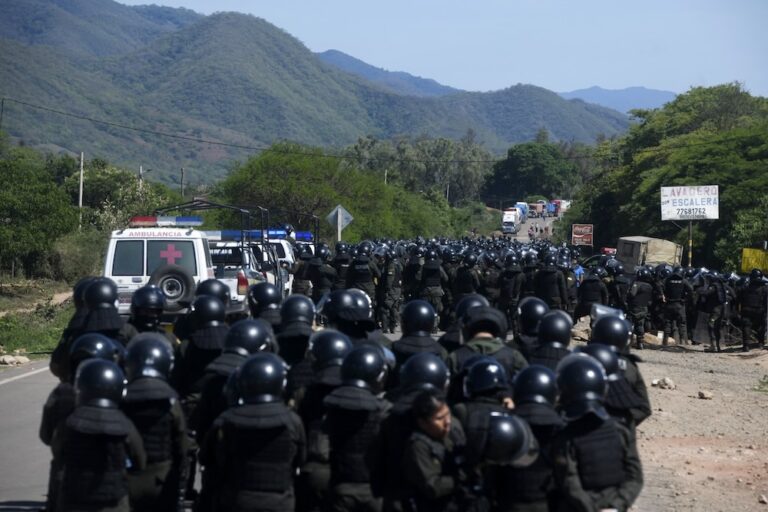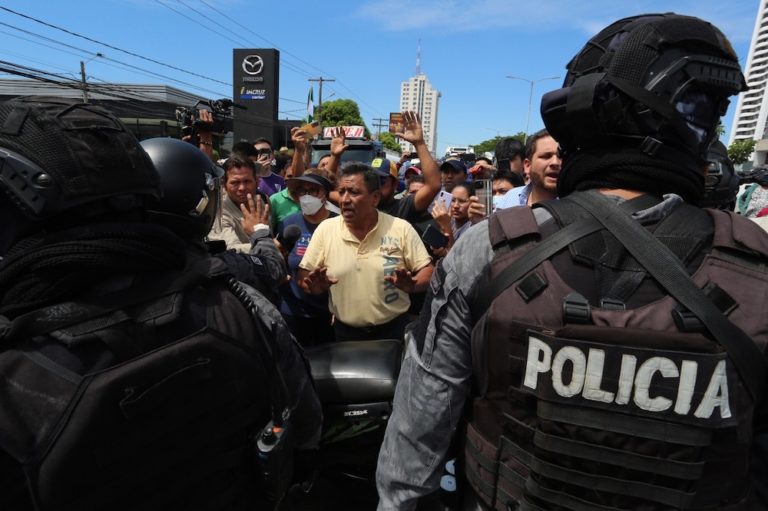(RSF/IFEX) – In a letter to Bolivian President Jorge Quiroga, RSF expressed concern over the death of Juan Carlos Encinas, an investigative journalist for Enlace, a Canal 21 programme. The organisation asked the president to implement all measures necessary to identify and convict the journalist’s killers. “This is the worst violation of press freedom in […]
(RSF/IFEX) – In a letter to Bolivian President Jorge Quiroga, RSF expressed concern over the death of Juan Carlos Encinas, an investigative journalist for Enlace, a Canal 21 programme. The organisation asked the president to implement all measures necessary to identify and convict the journalist’s killers. “This is the worst violation of press freedom in Bolivia in the last few years,” said RSF Secretary-General Robert Ménard. “It is your government’s responsibility to demonstrate its commitment to respecting press freedom by ensuring that an impartial and in depth investigation of the murder is carried out,” added the organisation’s secretary-general, who recalled that army members are involved in this case.
According to information gathered by RSF, Encinas was mortally wounded on 29 July 2001 while covering a conflict between two rival organisations that are battling for contol of a mining cooperative, the Cooperativa Multiactiva Catavi Ltda, located in El Alto (nineteen kilometres from La Paz). The journalist was present when, at around 7:30 a.m. (local time), one of the organisations surrounded the area and fired several gunshots. Wounded in the groin, he could not be evacuated because the attackers would not allow any of the wounded to be released. Encinas died at around 3:00 p.m., when his transfer to a hospital was authorised. Roger Romero, producer of the Enlace programme, confirmed that information gathered at the scene was to have been broadcast during the programme. On 5 July 2000, Encinas had already been the target of shots fired while he was covering the same conflict over the Cooperativa Multiactiva Catavi Ltda. On that occasion his camera was destroyed.
According to the Federation of Press Workers of Bolivia (Federacion de Trabajadores de la Prensa de Bolivia, FTPB) and the El Alto Union of Press Workers (Sindicato de Trabajadores de la Prensa de El Alto), a ballistics report by judicial police established that the ammunition used on 29 July could have come from an army reserve. Two Air Force sub-officers, Sergeants’ Renato Limache Ticona and Humberto Quisbert Limache, are suspected of providing the assailants with the arms. One of the witnesses saw them at the scene of the incident. Limache Ticona is suspected of shooting directly at the journalist.
Quiroga was named president of the Republic on 7 August after the resignation, for health reasons, of General Hugo Banzat, under whom he had been vice-president. He will hold the position until the end of his predecessor’s term, scheduled for August 2002.


